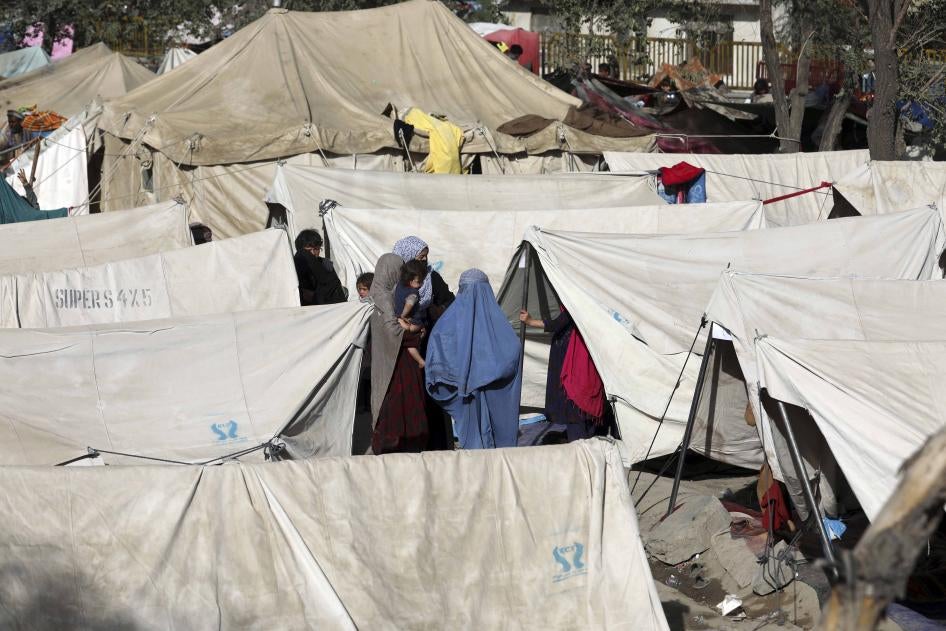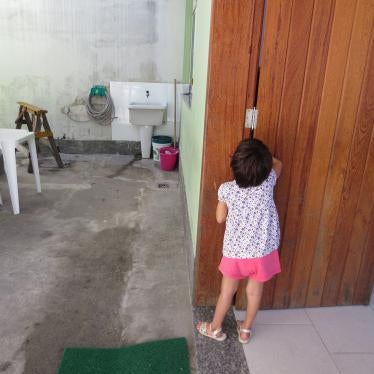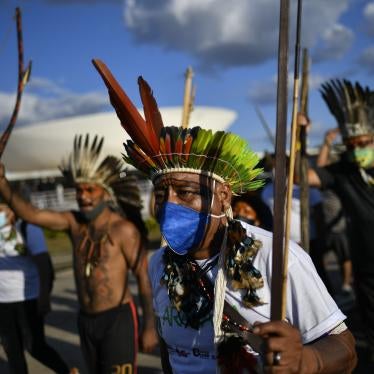Since the Taliban takeover of Afghanistan, thousands of Afghans have been fleeing threats of reprisal and persecution by seeking refuge abroad.
Taliban officials have issued vague and doubtful pledges about respecting human rights. Credible reports have been surfacing of their forces detaining people associated with the former government and its international allies. In recent years Taliban officials have also been implicated in killing dozens of journalists and activists, and have issued threats against many more. When they were in power, from 1996 to 2001, they banned most education for women and girls, used lashing and stoning as punishment for supposed “moral” crimes, and confined women to their homes unless escorted by a male family member. Women were denied freedom of movement and access to almost all employment.
Given this abysmal record and uncertainty about the future, it is unlikely that the exodus of those at risk in Afghanistan will stop anytime soon.
Governments around the world are scrambling for solutions. Many are halting deportations of Afghans. The United States, Canada, and several European countries are already accepting Afghan asylum seekers and have pledged to allow more. Brazil has now also announced important steps to help new refugees.
Already in December 2020, as Taliban forces were increasingly making military advances, Brazil’s refugee agency, known by the acronym CONARE, began to fast-track Afghans’ asylum claims, determining that they faced “mass and widespread” human rights violations. This mirrored CONARE’s mass recognition of Venezuelans’ refugee status, which, since 2019, has allowed Brazil to recognize more than 46,000 refugees. The United Nations Refugee Agency called that innovation by CONARE a “milestone in refugee protection.”
Recently, the media reportes that Brazil would issue new humanitarian visas allowing Afghans who have fled to neighboring countries to gain refugee status in Brazil. Brazil successfully pioneered the use of humanitarian visas in 2012, when Haitians were fleeing a devastating earthquake, and made them available again in 2013, as a brutal civil war pushed growing numbers of Syrians out of their home country.
Brazil hardly has a spotless record. After the pandemic struck, Brazil banned Venezuelans from entering at its land borders It also ordered the deportation of those who managed to enter, even if they were asylum seekers, in violation of Brazil’s international obligations.
But Brazil’s extension of humanitarian visas and special status for Afghan refugees is a good start in addressing the Afghan refugee crisis. Considering the gravity of the crisis, Brazil can go farther. The government should announce generous pledges for resettling Afghan refugees in Brazil and for assisting the humanitarian response for displaced Afghans inside Afghanistan and in the region.
Brazil should couple its offers of resettlement and aid with calls on the Taliban to respect human rights including every person’s right to leave their country, while also calling on Afghan’s neighbors to open their borders to those likely to be targeted by the Taliban. Through these steps, Brazil will hopefully inspire others to take similar steps, as it has already done with its fast-track recognition of Afghan asylum claims.
Brazil can also help lead at the United Nations. As a member of the UN Human Rights Council and a current member of the Security Council, Brazil should push for robust UN mechanisms to monitor human rights in Afghanistan. Specifically, it should support the creation of a strong accountability mechanism when the Human Rights Council next meets in September. The Security Council has already expressed “deep concern” about reported serious violations of international humanitarian law and will meet soon to adopt a new Afghanistan resolution. It is essential for the resolution to ensure that the UN retains the capacity to gather information about human rights abuses in Afghanistan, collects evidence of grave crimes for future prosecutions, and reports its findings publicly.
Brazil has instituted standards and procedures of refugee recognition for Venezuelans and Afghans that serve as a model for the rest of the world. By taking these additional steps, Brazil can demonstrate leadership at this critical moment to mobilize a global network to save lives of people in grave danger while helping to restore respect for human rights and dignity worldwide.
A version of this article is published in Portuguese by Folha.










